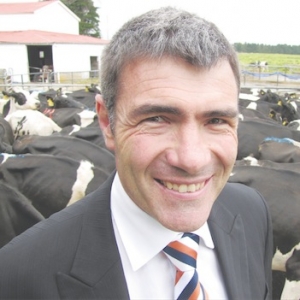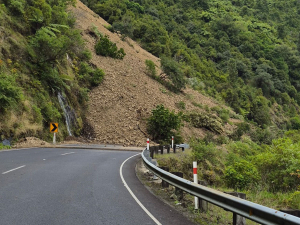TRYING TO determine how primary producers can achieve the Government’s goal of doubling New Zealand’s exports by 2025 was the focus of a meeting of the agribusiness ‘boot camp’ group in Wellington last week. The meeting was attended by the chairs and senior managers representing 80% of New Zealand’s primary exports.
Agribusiness leaders have summer homework assigned by Primary Industries Minister Nathan Guy, who is trying to determine how producers could double exports by 2025 – a goal of the Government.
Guy spoke about this to 40 members of the agribusiness ‘boot camp’ group, and special guests. He outlined his vision for the next three years, centring on the 2025 target. The group comprises chairs and senior managers representing 80% of New Zealand’s primary exports; they are seen as the sector’s leaders. (The meeting was held in the beautifully refurbished and famous Art Deco Roxy movie theatre in Wellington.)
Guy finally asked the group to determine the three biggest obstacles and opportunities bearing on a doubling of exports by 2025 and to report at the next meeting in February 2015.
Guy says his vision is for New Zealand to be a world leader in premium, value-added products in demand worldwide. And he wants the primary industries to be a highly desirable career choice for the best and brightest young people and for science to make New Zealand a world leader in environmental sustainability.
A pathway to this, says Guy, is New Zealand increasing its competitiveness to match other world producers. “We are already the most productive and innovative producers in the world. But that doesn’t guarantee us anything in the future. The world is changing fast, it doesn’t owe us a living and resting on our laurels will get us nowhere. Other countries are intent on the same success, competing strongly for trade deals and investing heavily in R&D.”
Guy believes there is huge potential for NZ companies to collaborate more.
He referred to producers’ need for a “social licence to operate”, this being “the ability to produce our products sustainably, bringing the community with us and earning their respect and understanding”.
“We also need to tell a better story to Kiwis about the importance of the primary sector to the New Zealand economy. We are too reactive, and the challenge is to get the positive stories out there on issues like environmental sustainability. People need to know that we are good stewards of our land and sea.”
Guy says environmental performance across the sector is no longer a ‘nice to have’ – it’s a necessity for the New Zealand public and our global consumers.
The biggest challenge is attracting young people to make a career in agribusiness. Without top people New Zealand won’t be competitive or increase the value of produce.
“Young people won’t want to work in an industry they think is dirty, degrading to the environment or cruel to animals. We need to sort out the poor performers because they will drag our reputation into the mud.
“My challenge to boot camp attendees is to form a working group to work with me and my officials to help deliver practical solutions. One idea might be a New Zealand ‘primary sector skills fund’ from which the industry pays for high profile scholarships to top up the Government’s tuition subsidies and student loans. Or ‘primary sector ambassadors’ who can talk up our industry in the classroom and create stronger partnerships between schools and industry.”
Guy says the primary sector’s increasing sophistication, e.g. new technologies such as robotics, will offer wider employment opportunities.


















